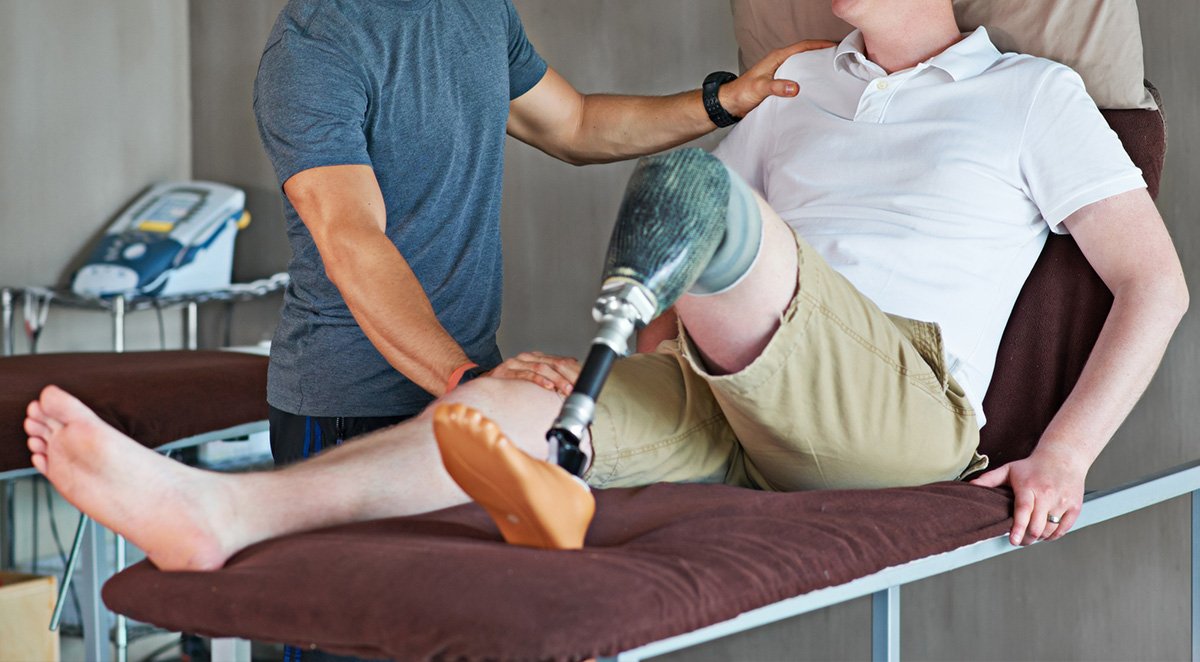Losing a limb can be one of the most life-altering experiences an individual can face, and the journey toward recovery involves not just physical rehabilitation but also emotional and psychological healing. Prosthetics, while designed to restore physical function, play an equally important role in the mental and emotional well-being of individuals who have undergone an amputation or were born without a limb.
The Emotional Toll of Limb Loss
The loss of a limb, whether due to an accident, illness, or congenital conditions, can lead to feelings of grief, anger, anxiety, and depression. Beyond the physical pain and challenges, individuals often grapple with a loss of identity and independence. The emotional stages of grief—including denial, anger, bargaining, depression, and acceptance—are common as individuals mourn the loss of their body part and the life they once knew.
Additionally, societal attitudes and misconceptions about amputations can contribute to feelings of self-consciousness and isolation. People with limb loss often worry about how others perceive them, which can lead to social withdrawal and decreased self-esteem. This emotional burden is one of the hardest aspects of life post-amputation.
The Role of Prosthetics in Emotional Recovery
Prosthetics offer more than just a replacement for a missing limb; they serve as a gateway to reclaiming one’s independence and self-confidence. For many, receiving a prosthetic marks the beginning of a new chapter in their lives. The ability to walk, grasp objects, or perform everyday tasks once again brings a sense of empowerment, hope, and control over their body and future.
Here are several ways prosthetics contribute to emotional and psychological recovery:
- Restoring Independence: Losing a limb often makes simple tasks—like dressing, cooking, or driving—seem impossible. Prosthetics help individuals regain the ability to perform these tasks, restoring their sense of autonomy and enabling them to participate in daily life with greater ease.
- Boosting Self-Esteem and Confidence: For many amputees, one of the biggest psychological challenges is the change in their body image. Modern prosthetics, especially cosmetic and bionic options, offer a lifelike appearance and functionality, helping individuals feel more like themselves. Being able to engage in physical activities and social interactions without feeling limited or different boosts self-esteem and social confidence.
- Reclaiming Identity: Losing a limb can sometimes feel like losing a part of oneself, both physically and emotionally. Prosthetics allow individuals to reclaim their identity by enabling them to return to work, hobbies, sports, or even creative pursuits that once defined them. This reclaiming of identity plays a key role in psychological recovery and personal fulfillment.
- Combatting Feelings of Isolation: The sense of isolation and loneliness that often accompanies limb loss can be mitigated by the use of prosthetics. Individuals who can participate in social activities, sports, or group gatherings with the help of their prosthetic limb often feel more included and connected to their communities. Moreover, support groups and online communities for amputees also provide emotional support and shared experiences, easing feelings of isolation.
Overcoming Challenges and Adapting to a New Life
While prosthetics can significantly aid in emotional recovery, the adjustment period can still be mentally and physically challenging. Learning to use a prosthetic limb involves a steep learning curve, often requiring months of physical therapy and rehabilitation. Frustration, fear of failure, and occasional setbacks are natural responses during this process, and some individuals may experience emotional exhaustion or depression along the way.
It is essential to recognize the importance of mental health support alongside physical rehabilitation. Counseling, support groups, and therapy can provide emotional tools to cope with the changes in body image, lifestyle, and personal expectations. Encouragement from family, friends, and healthcare professionals also plays a crucial role in helping individuals stay motivated and positive throughout the process.
The Psychological Benefits of Advanced Prosthetics
With modern technology making prosthetics more functional and lifelike than ever before, amputees are experiencing greater psychological benefits. The latest advancements in bionic limbs, for example, allow users to control movements with their thoughts or muscle signals, giving them a more intuitive and natural experience. These advancements help reduce frustration and anxiety that often come with using older, less sophisticated prosthetic models.
Moreover, the aesthetic design of prosthetics has improved significantly, allowing individuals to personalize their limbs to reflect their personalities and tastes. Whether through artistic designs, advanced materials, or even fashion-forward prosthetic covers, the ability to customize a prosthetic limb offers a creative outlet and helps people take pride in their prosthetic rather than feeling ashamed of it.
Inspirational Stories: The Resilience of Prosthetic Users
Stories of individuals who have overcome the emotional hurdles of limb loss and thrived with the help of prosthetics are a source of hope for others facing similar challenges. Athletes who compete in the Paralympics, soldiers who return to active duty, or everyday individuals who regain their ability to work and live fulfilling lives are testaments to human resilience and the power of modern prosthetics.
These stories highlight how prosthetics can not only help individuals overcome physical limitations but also reignite their emotional and psychological strength. They serve as powerful reminders that limb loss does not have to define one’s life or limit one’s potential.
Conclusion: A Journey Toward Emotional Healing
The journey from limb loss to emotional recovery is a deeply personal one, and prosthetics play a critical role in helping individuals navigate that path. While the initial emotional toll of limb loss can be overwhelming, prosthetics provide a way forward—restoring mobility, independence, and most importantly, hope. By addressing both physical and emotional needs, prosthetics empower individuals to embrace their new reality with confidence and resilience, proving that life after limb loss can be just as fulfilling and meaningful as before.
